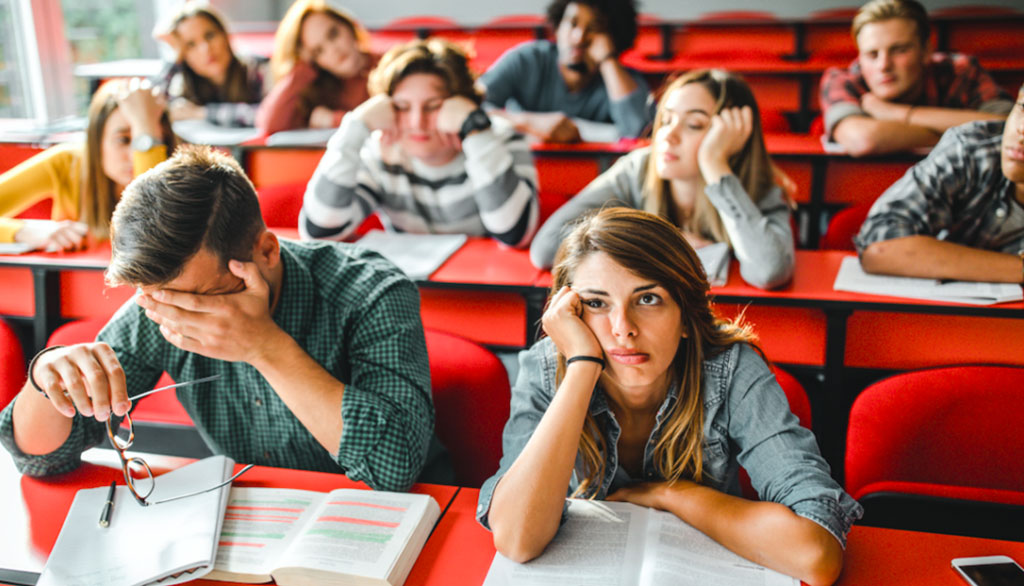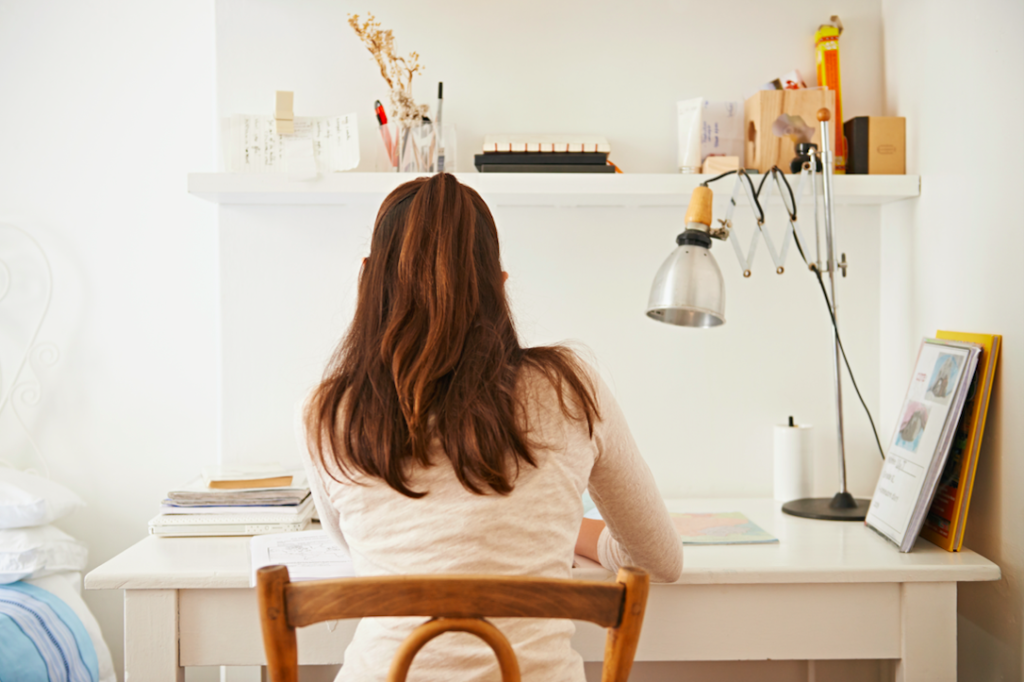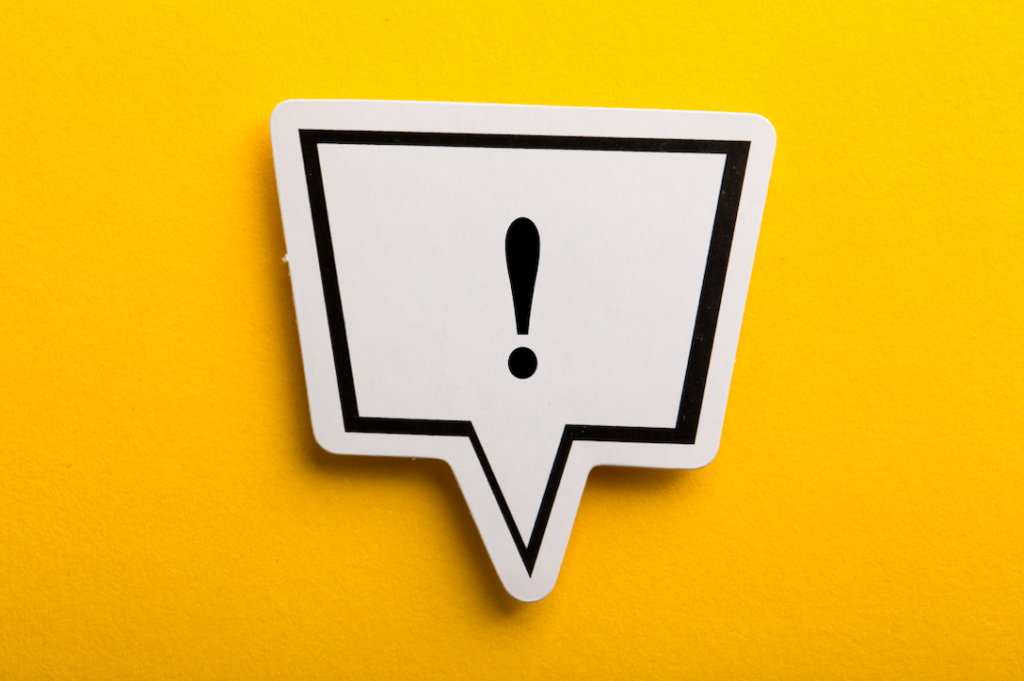Sleep
Adolescents and Sleep: What You Need to Know

Article at a Glance:
- Teens need 8-10 hours of sleep every night.
- Approximately 95% of males and females in the 12th grade do not get enough sleep.
- Sleep deficits can impair students’ ability to focus, learn and create new memories.
Studies indicate that people in industrialized nations are becoming increasingly sleep-deprived, and the problem is most acute among teens. In fact, the American Academy of Pediatrics calls insufficient sleep in teens a public health epidemic. The sharp rise in chronic sleep loss poses a serious threat to the academic success, health, and safety of our nation’s youth.
Understanding Adolescent Sleep
According to the National Sleep Foundation, teens need approximately 8-10 hours of sleep every night in order to function and feel their best. The reality is that a substantial proportion of [American] teens are not even close to obtaining the recommended amount of sleep.
Key Facts
- Among 12th graders, approximately 95% of males and females do not get enough sleep. (CDC)
- The percentage of students getting insufficient sleep increases as students progress from grades 9 to 12. (CDC)
- One study indicates that only 15% of teens get 8 1/2 hours of sleep on school nights. (National Sleep Foundation)

Factors Affecting Adolescent Sleep
It’s important to remember that teens are at an important stage of their growth and development. Unfortunately, there are many social and cultural forces that limit their sleep:
- Circadian rhythm shifts. After puberty, adolescents experience a biological shift in their internal clock of about two hours. This means that a teenager who used to fall asleep at 9:00 PM will naturally start falling asleep closer to 11:00PM. It also means waking up two hours later the next morning.
- Early school start times. More than 80% of U.S. middle, high, and combined public schools require students to attend class at times earlier than recommended by the American Academy of Pediatrics, Centers for Disease Control and Prevention, and American Medical Association.
- Educational obligations. There is a lot of pressure for students to succeed, and many adolescents feel overwhelmed by unrelenting school demands – including homework, sports, and extracurricular activities. They often put off sleep in order to keep up with these demands. As a result, it’s difficult to focus and learn in the classroom the next day. This becomes a vicious cycle in which the whole essence of learning is essentially lost.
- Social obligations. Today’s teens live in an “always on” world in which they are constantly connected to various electronic devices. Approximately 92% of U.S. teens have smartphone, and more than one-third of teens bring cellphones into their bedrooms and use them before sleep. This is problematic because digital devices stimulate the mind, and LED screens emit harsh blue light that suppresses melatonin production. This makes it harder for adolescents to fall and stay asleep at all, let alone at a reasonable hour. Research shows that even when teens finally put their phones down, 28% of them still leave their phones on while sleeping, only to be awakened at night by texts, calls or emails.
“With academic demands and extracurricular activities, the kids are going nonstop until they fall asleep exhausted at night. There is not an emphasis on the importance of sleep, as there is with nutrition and exercise. They say they are tired, but they don’t realize they are actually sleep-deprived. And if you ask kids to remove an activity, they would rather not. They would rather give up sleep than an activity.”
– Nanci Yuan, MD, director of the Stanford Children’s Health Sleep Center

The Consequences of Poor Adolescent Sleep and How to Fix it
In order to address the chronic sleep loss in teens, it’s critical to acknowledge the potential consequences of this epidemic:
- Sleep deficits can impair students’ ability to focus, learn and create new memories.
- Insufficient sleep in teens is associated with obesity, migraines, and immune system disruption.
- It can also negatively influence decision making, leading to riskier behaviors including but not limited to smoking, drinking, stimulant abuse, physical fighting, and auto crashes.
- Sleep deprivation may affect one’s ability to exercise self-control — over their emotions, impulses and mood. Many studies have shown that severe sleep debt can trigger depression and/or suicidal ideation.
Tips to improve adolescent sleep:
- Maintain a regular sleep schedule. Adolescents should go to bed and wake up at about the same time every day – including weeknights and weekends. They should also make sure that they are getting the recommended 8-10 hours in bed.
- Take early afternoon naps, but don’t oversleep. 15 to 20-minute naps in the early afternoon can be beneficial and provide a jolt of energy. However, sleeping for too long can make it more difficult to fall asleep later at night.
- Be mindful of digital devices, especially at night. As tempting as it is to hop on the computer, stream your favorite show, or scroll through social media feeds, these are stimulating activities that can make falling asleep more difficult. Additionally, the LED screens found in digital devices emit artificial blue light — light that can throw your circadian rhythm out of whack and prevent your body from producing melatonin.
- Avoid caffeine after 2PM. Caffeine is a stimulant that can take the body up to six hours to digest. It’s best to stop consuming caffeine (coffee, tea, soda) in the early afternoon so that your body can more easily relax into a deep sleep later at night.
- Also avoid alcohol, and drugs. According to Neuroscientist Matthew Walker, drinking is more like anesthesia than real sleep, due to alcohol’s sedative effect. Instead of helping you fall asleep, alcohol merely “sedates you out of wakefulness”. Similarly, sleeping pills do not provide natural sleep and can damage one’s health, especially if one becomes dependent on prescriptions rather than producing melatonin naturally.

